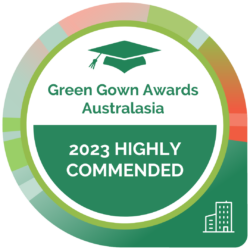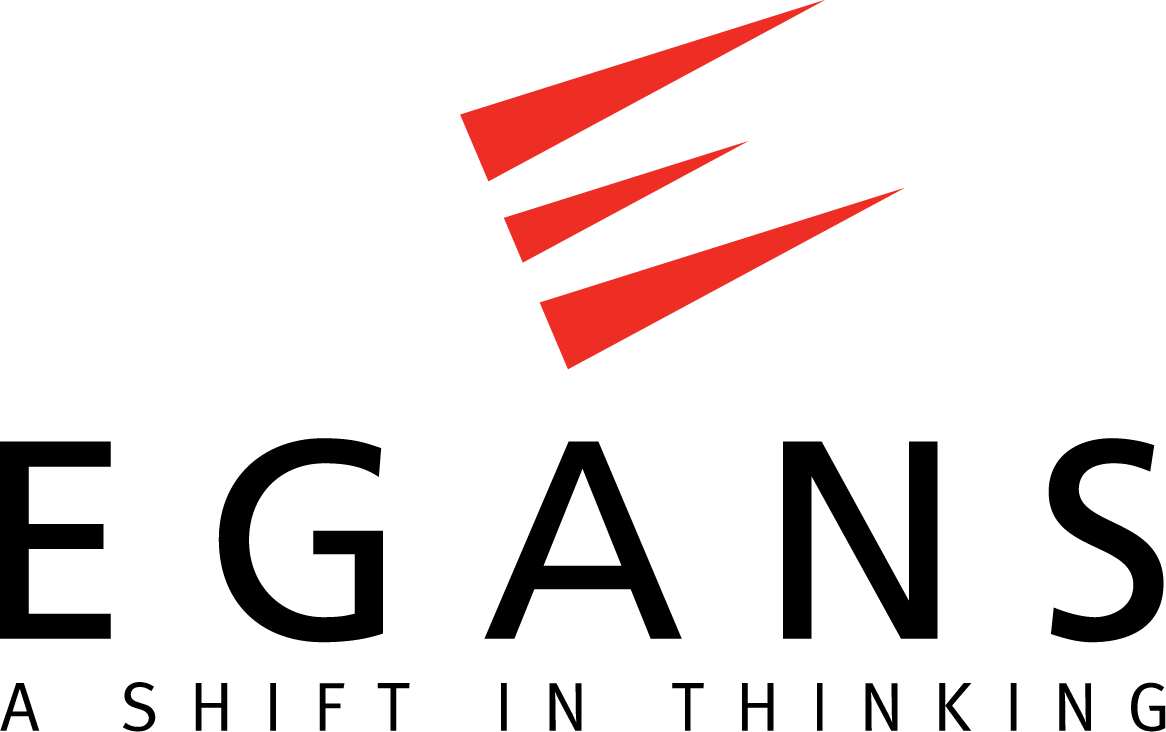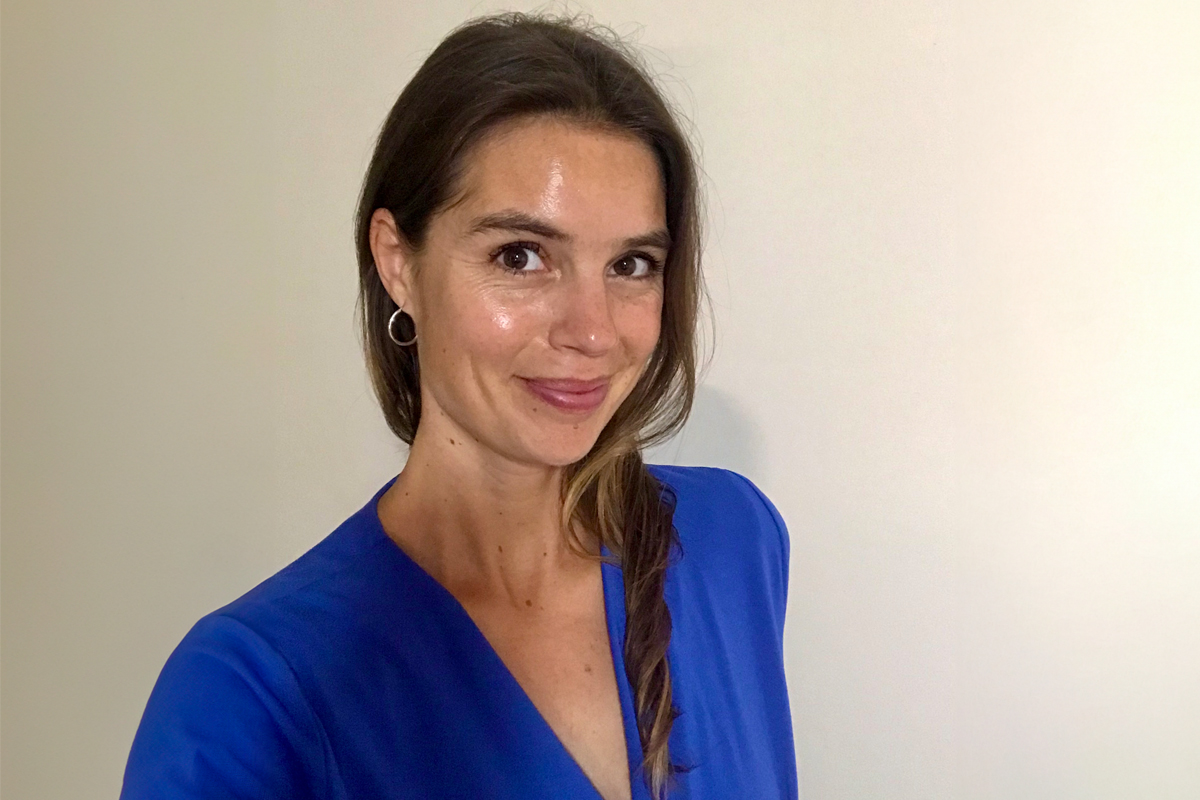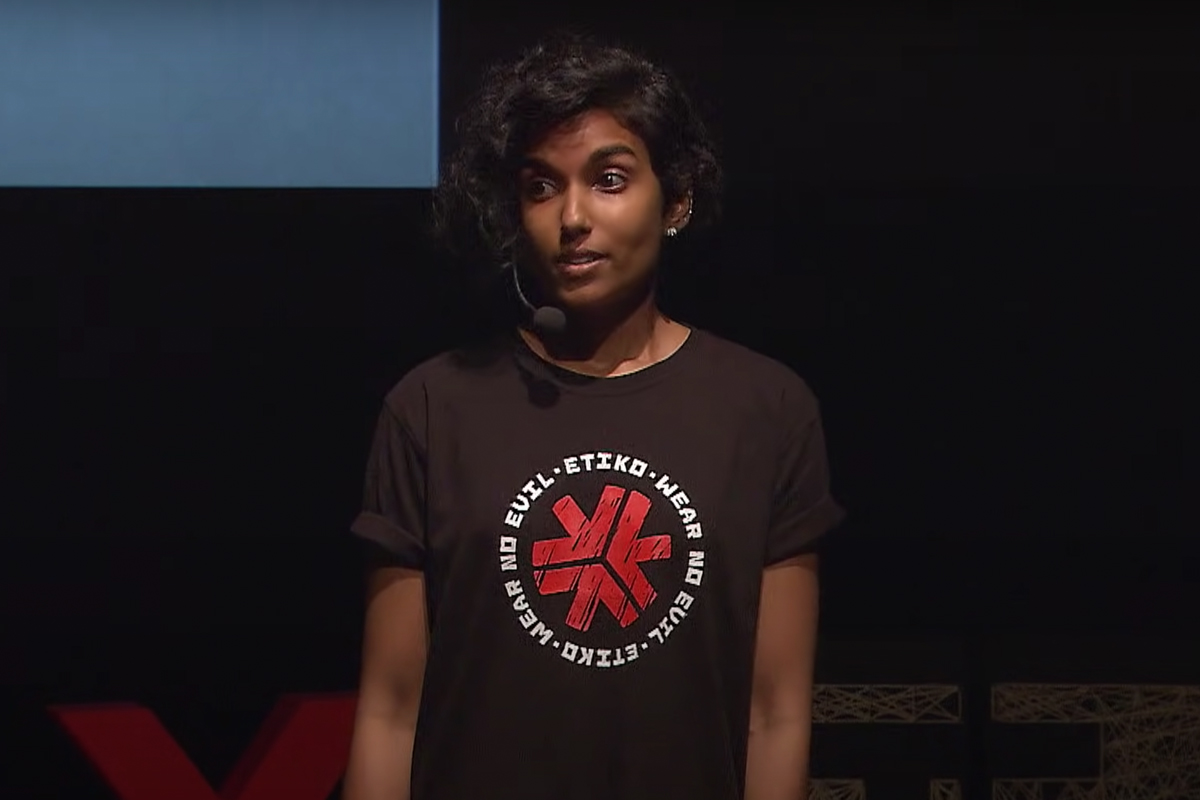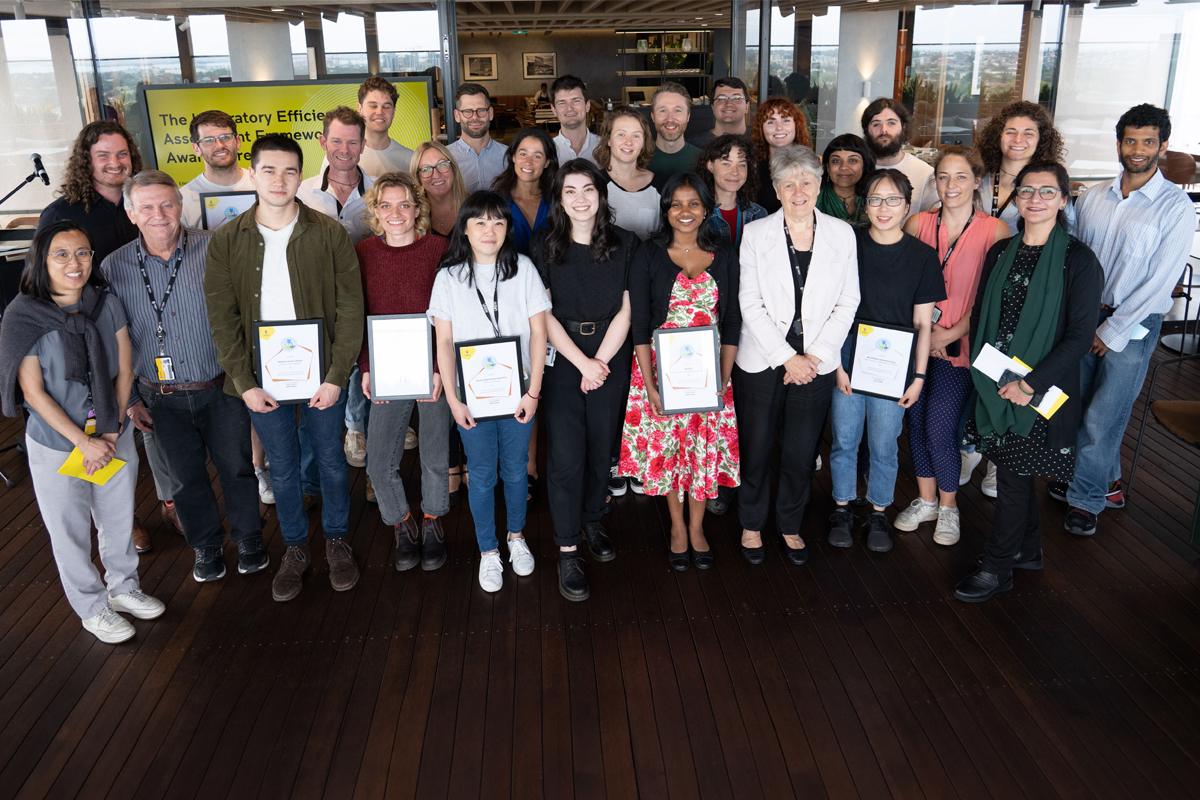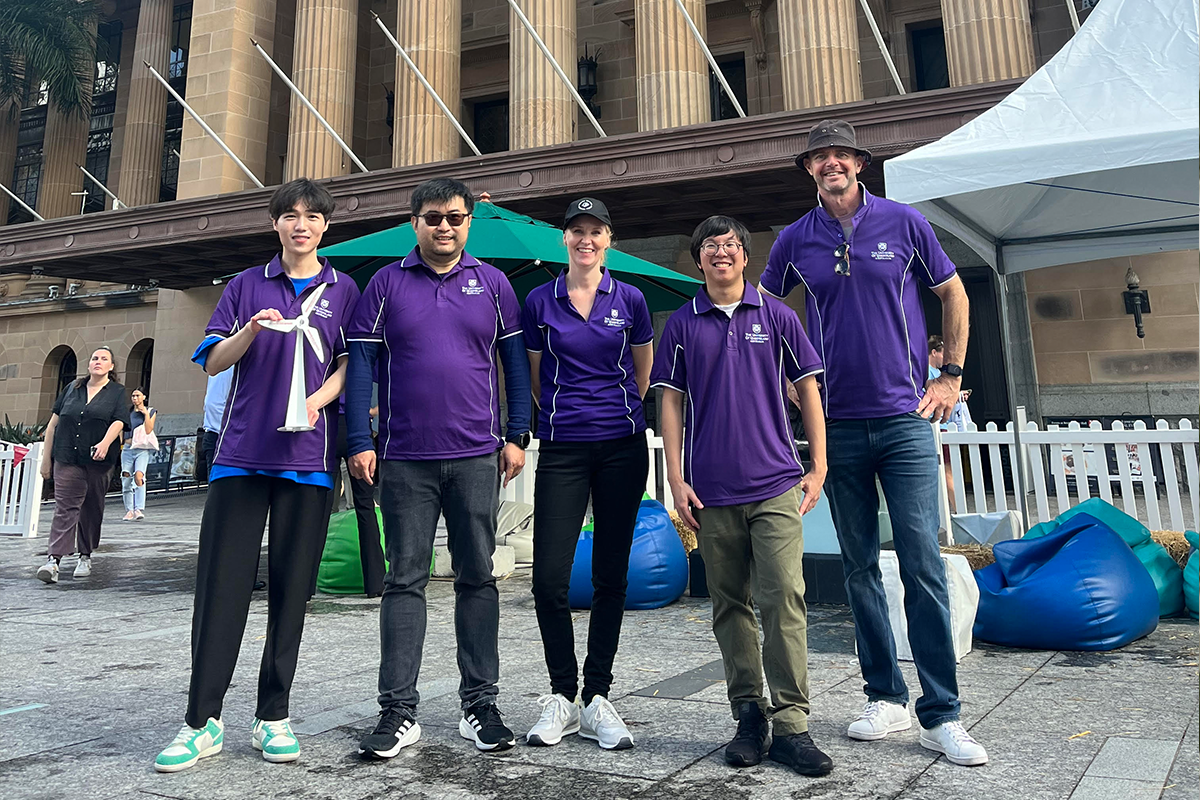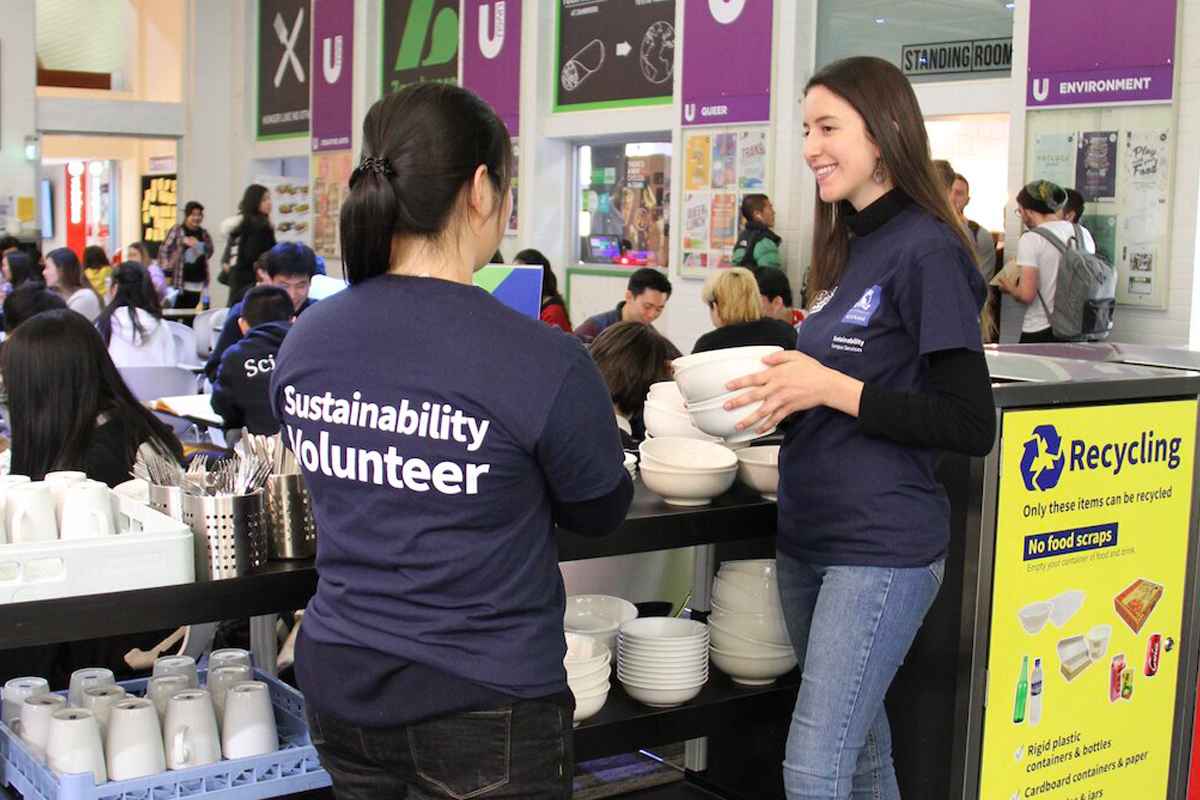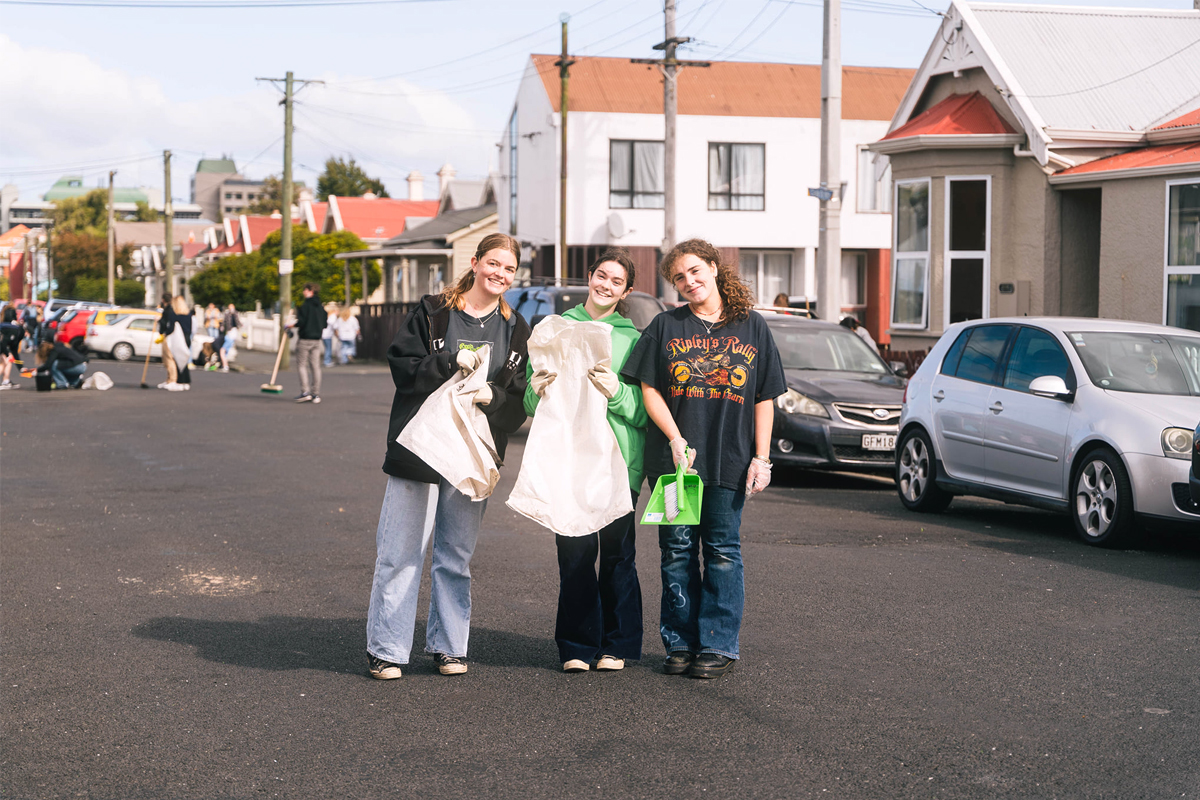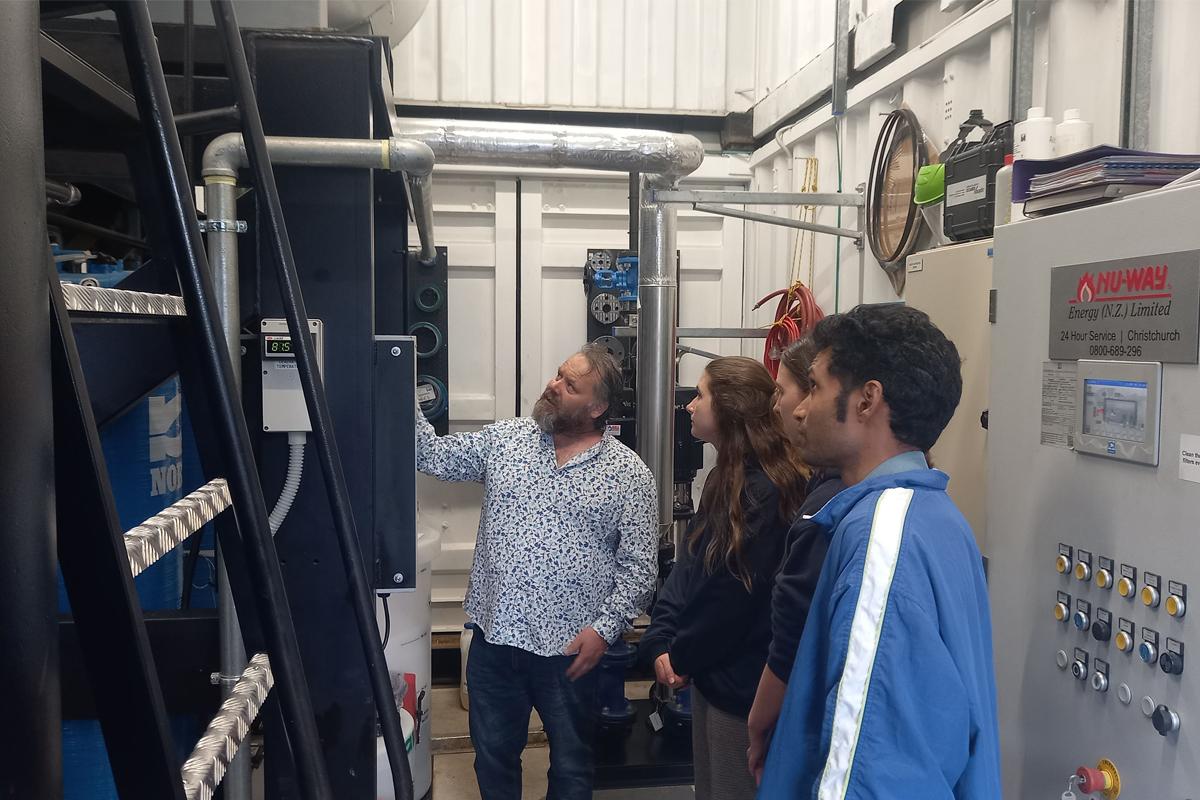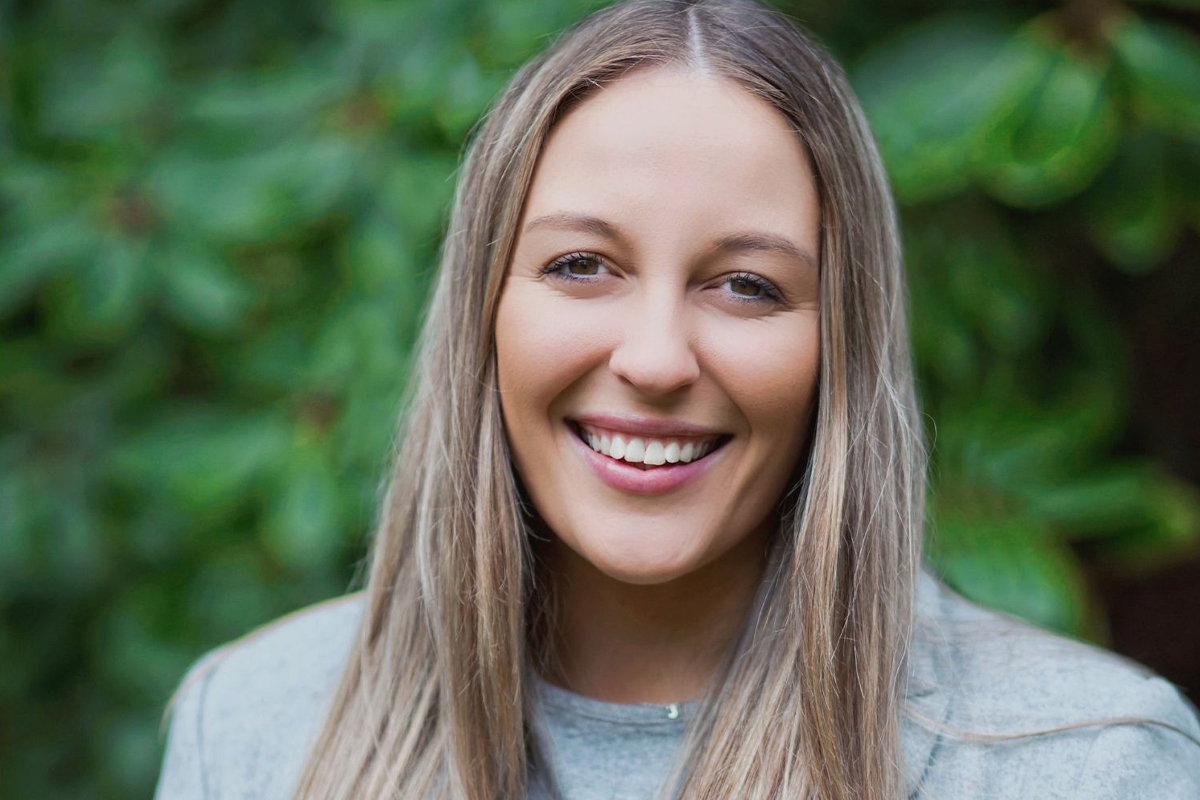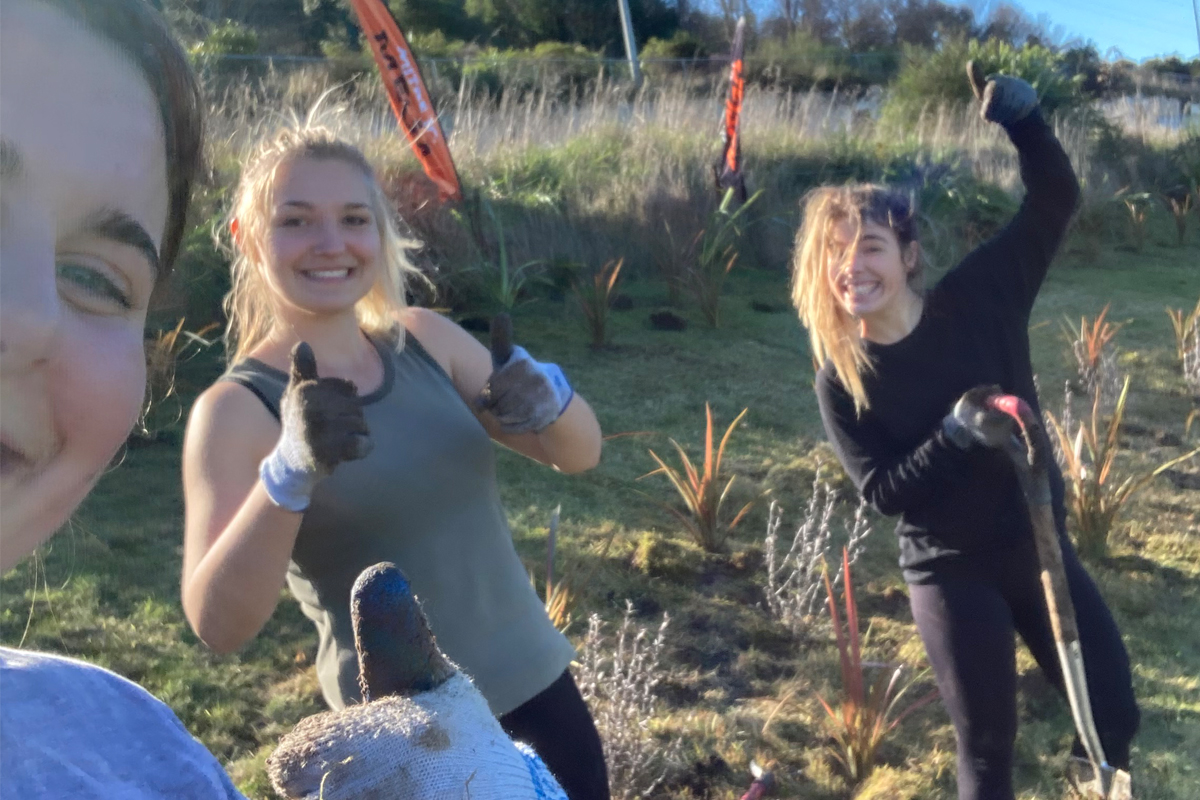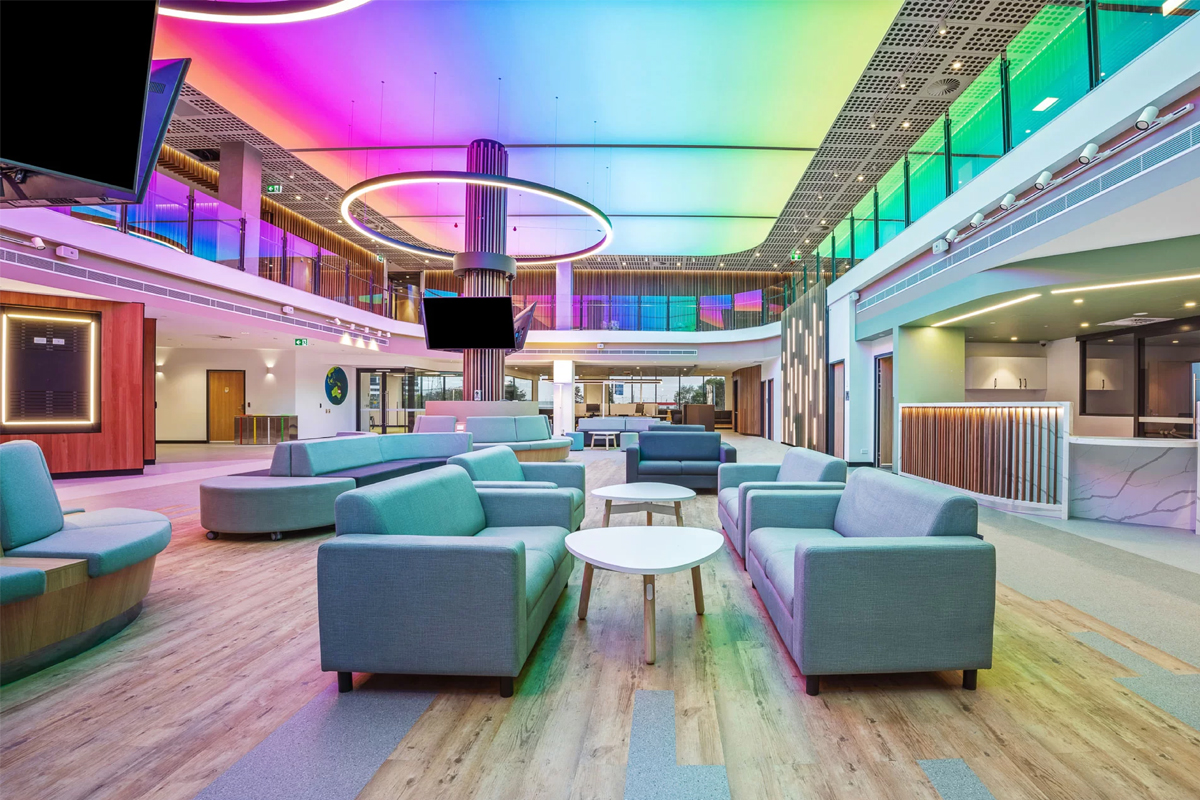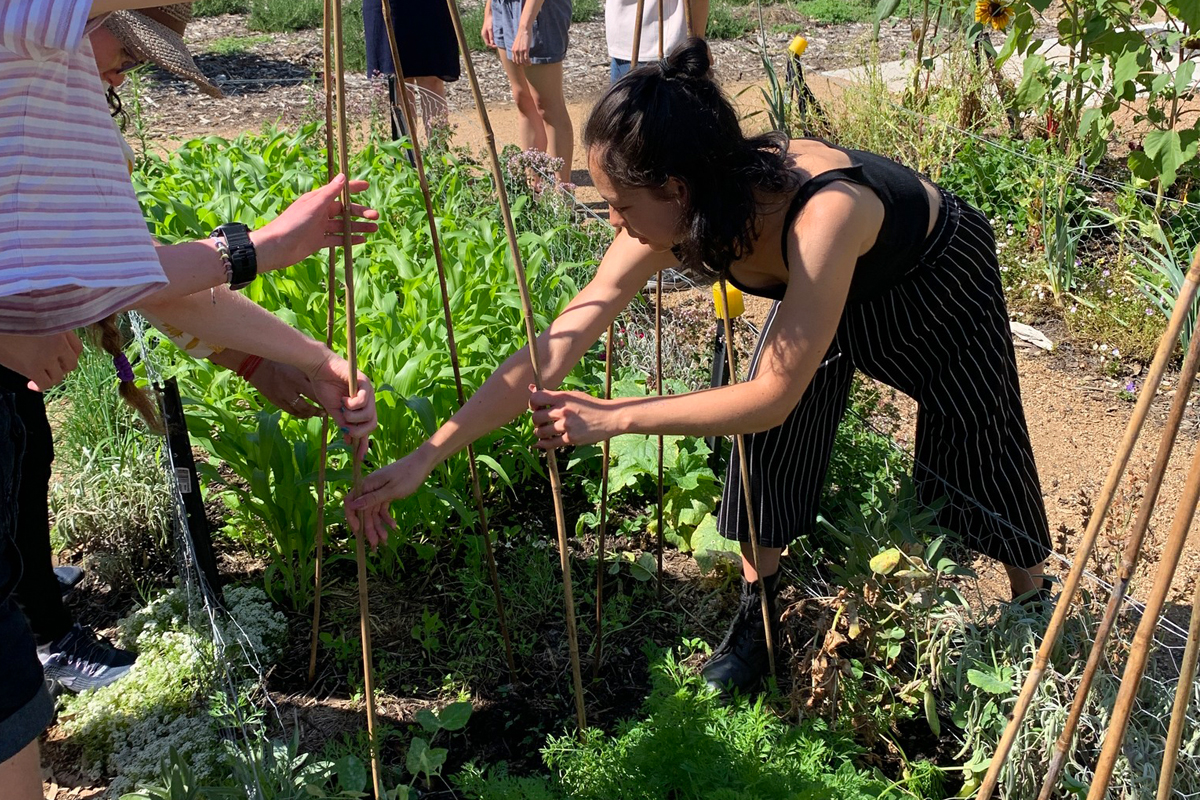Leading the Circular Economy/Winners category
The University of Tasmania (UTAS) is a sustainability-focused university. Its leadership in sustainability has been recognised by being the first STARS Gold rated university in Australasia and by being ranked 1st in the world – for the second year running – in SDG13 Climate Action by the Times Higher Education Impact Rankings, and #5 overall for its performance against the 17 SDGs in 2023. Delivering circular economy outcomes has been central to this success. Building on the successes of various programs and pilots, our UTAS Waste Minimisation Action Plan, based on the 10 R’s for circularity, includes a target of reducing waste to landfill by 25% per Equivalent Fulltime Student Load by 2025. Supporting the value of setting a firm target, through the efforts described below and as reported as part of our Climate Active carbon neutral certification, in 2022 UTAS diverted 706 tonnes from landfill (25% of our waste), including 165 t (6%) of organics and 544 t of recycling (19%).
Our circularity approach includes:
Facilities and Operations
- Sustainability and circularity are included as key considerations in the University’s Procurement Policy and Sustainable Procurement Guide that delivers a shift from price and quality criteria only to incorporating triple bottom line outcomes to purchasing goods services, utilities and works. Priorities outlined when commencing the procurement process are:
- Use less (buy only what you need) and minimise packaging.
- Buy local (reduce transport from manufacturer to you).
- Choose items that can be repaired and reused instead of single use.
- Choose items that can be recycled at end-of-life or are under a manufacturer’s product stewardship program.
- With over $800m committed to developing new campuses across the state over a 10-year period, the positive impact of a focus on sustainable development and a circularity mindset is clear. A zero-waste circular economy focus is named up in our strategies guiding campus and building design and construction (e.g., Southern Future Urban Design Framework and Masterplan, see pp29-30 in downloadable document). Already well into delivery stage at our northern campus redevelopments, circular economy highlights include:
- Decommissioned Queensland gas pipeline (366 piles x 18 m, or 6.5 km) repurposed as pilings for three new builds.
- Reuse of 13 steel desk frames to create the shelving in the glasshouse at Inveresk. The cost saving (compared to having custom shelves made up) was around $3000.
- Use of Reconophalt asphalt for new carparks in Launceston and Burnie campuses that has diverted over 900,000 plastic bags and 23,000 toner cartridges from landfill and the product uses reclaimed asphalt and aggregate and sand from street sweepings and hydro-excavation materials.
- Interface® carpets used throughout with fully recycled content and recyclable.
- Building designs focused on ‘de-constructability’ for materials re-use in the future when buildings decommissioned.
- Our Re-Use Program started in 2016 with furniture and has since expanded in number and types of items being relocated within the University or donated to local charities (e.g., stationery, IT equipment). The Re-Use Program has avoided a substantial amount of waste (>90 t to early June 2023), delivered significant savings (>$1.4m) and avoided emissions (>239 t CO2e). With all the transitions, transformations, and decanting of furniture between campuses and buildings, the Re-Use Program has been and will continue to be key in providing literal truckloads of furniture for teaching and office spaces across all our Tasmanian campuses, as well as providing an avenue to re-home any surplus furniture no longer needed through donations and dis-assembly for recyclable components as a last resort.
- Since late 2019, 21 recycling walls have been deployed across all our Tasmanian campuses to enable staff and students to deposit those hard to recycle items not collected through the standard co-mingled streams and to encourage participation in the circular economy. Finding and using the walls is enabled through the provision of an online interactive map and users guide. Items like toothbrushes and toothpaste tubes, batteries, printer cartridges, pens and texters, blister pack pill packaging, small e-waste items and mobile phones are just some of the recycling streams collected and forwarded to local and mainland-based recyclers. The items get turned into new items such as outdoor and garden furniture, alternative road and pavement materials and even recycled stationery. The recycling walls make visible our commitment towards a zero-waste society and a circular economy. Since rollout, the recycling walls have diverted over 1.2 tonnes from landfill. Most of the recycling walls were made from old filing cabinets sourced from the Re-Use Program. These ‘DIY’ recycling walls have custom graphics on all sides to provide information about where the materials go, how they are recycled and into what sorts of products.
- Sustainability with a circular economy focus is also embedded in the Asset Management Procedure and the Clean out and Disposal Process Guide (latest versions of both approved in 2022). The University recognised a need for a tool to help staff sustainably deal with redundant items in a clean-up process. This guide fills a gap to enhance the outcomes of clean-up activities. The guide provides simple to follow step-by-step processes on options to help achieve improved benefits through re-use, donation, recycling, etc. to minimise waste to landfill and maximise value to the University and supported organisations. The first draft was developed in consultation with College of Science and Engineering staff to ensure sustainable outcomes during a major cleanout in 2020.
- Our ‘bin rationalisation program’ was rolled out across all campuses by mid-2022 that included centralised bin sets, new signage, collection of food organics from all tea rooms, with the collected materials commercially composted rather than landfilled, and removal of under desk bins to address contamination issues and reduce the number of plastic bags used.
- Installing an in-vessel aerobic composter at our new Inveresk campus in August 2022 allowed processing of over 8.5 tonnes of materials to produce about 12 cubic metres or 5 tonnes of compost (compost having a higher weight per volume ratio than most inputs apart from coffee grounds). The composter takes materials from on-site cafes, student accommodation (each student has access to a ‘compost caddy’ to support this) and the extensive community gardens on the site. The resulting compost is used in the gardens and given away to site volunteers for home gardens.
- To improve services, save money and reduce emissions, skip bin sensors were temporarily installed in 2021 to gather data on fullness and contamination. This resulted in changes to collection schedules that has saved over $5000/month. A waste hub to reduce the number of skip bins and increase efficiencies is planned for Newnham Campus in 2023.
- All onsite catering contracts require use of commercially compostable packaging since 2021, which was a key initiative of the Plastics Minimisation Working Group of the Sustainability Committee.
- 35 abandoned bikes were collected in 2022, made road worthy through a partnership program with the Launceston Big Picture School, and donated to local students, demonstrating repair first principles of circularity.
- Five on campus cafes across the state have keg milk from The Udder Way. This has significantly reduced their recycling needs as completely avoids single use milk bottles as the kegs are cleaned and refilled.
- Closing the loop is important as exemplified in our Sustainability Tracking Assessment and Rating System (STARS) reporting for circular economy categories, such as a 98% purchase of office paper that is 100% recycled content.
Student Experience and Engagement
- Students are directly involved in a wide range of circular economy-related projects through the Sustainability Integration Program for Students (SIPS). Since 2017, 113 students have undertaken projects focused on elements of a circular economy approach that have directly impacted on policy, procedure, programs, and projects. SIPS students undertook research to design and initiate the recycling wall program, verified the Re-Use program calculations for the Australian context as the program was developed in the United Kingdom, undertook auditing to calibrate the new bin sensors to ensure data accuracy and collected pre and post waste volume data to measure bin rationalisation program impact.
- Through waste related SIPS projects, students consult, seek advice and network with a wide range of external waste partner organisations in Tasmania including Replas, Northern Tasmanian Waste Management Group, Hydro Tasmania and Hobart Airport, and local councils including Hobart and Burnie.
- Waste audits with SIPS students have included TIA (Tasmanian Institute of Agriculture) labs and staff offices at Cradle Coast campus, Tasmanian University Student Association (TUSA) events at various campuses, external skip bins at Newnham campus, tea room waste at Sandy Bay campus, food waste from on campus cafes and Student Accommodation Newnham.
- Our waste data reporting is informed by waste audits undertaken by Environmental Impact Assessment (EIA) students over consecutive years.
- Students have worked with the Sustainability and Student Living teams across consecutive years to reduce waste to landfill through encouraging donations and recycling during the end of year students’ move-out period.
- To reduce food waste to landfill, students at the Atrium Apartments (Burnie Campus), Hobart City Apartments (Hobart CBD Campus) and at Sandy Bay Campus apartments have access to either compost bins or worm farms. Across the sites there is one compost bin, two hot compost bays and ten worm farms. All are managed by students with support from on-site Student Living or academic staff mentors. Current and alumni SIPS students were involved in the research and design of these composting projects.
- TUSA officers and staff at our northern campus created the TUSA op shop, where students and staff donate kitchen ware and other household items to be available to other students to avoid buying new.
- Student projects have also focused on research waste, including diverting hundreds of kilograms of fish from landfill at the Taroona campus experimental fish facility and a review of sustainable lab programs at other universities with recommendations and opportunities shared with lab managers.
- The Green Impact Program for staff engagement started in 2018 and was expanded to include student teams in 2020. A bespoke student program started in 2021, with waste reduction and circularity being a key focus. UTAS staff and students have won three Australasian Green Impact champion awards, with waste reduction typically featuring on their applications. For example, a recent staff winner, who as part of their role hosts regular lunches for students, enables a significant reduction in waste to landfill by providing reusable crockery for students and staff at events, as well as for day-to-day use on campus that people can borrow and bring back. A recent student winner donates time to wiping excess University laptops for student donation and is a founding member of the UTAS students’ Zero Waste Society.
Learning, Teaching and Research
UTAS has a strong record in environmental research that addresses local and global issues. UTAS is a core member of the Sustainable Communities and Waste Hub (SCWH) that is one of four research Hubs as part of the Australian Government’s National Environmental Science Program (NESP2). The SCWH is a 7-year, multi-disciplinary and multi-institution initiative delivering innovative sustainability technologies, knowledge products and services for urban and regional communities and the waste management sector. The Hub’s solutions will enable the transitioning of production systems, investment, and consumer behaviour towards a circular economy.
Over the past few years, the Tasmanian Institute of Agriculture (part of UTAS) researchers have been working with True South Seafoods to research the potential of turning invasive sea urchin carcasses into a valuable fertiliser for home and agricultural use. Until UTAS became involved, following roe extraction the carcasses were landfilled. However, this project demonstrated that if ground up and dried, urchin fertiliser is created that boosts plant growth and adds important trace elements to soil. Just as importantly, turning the urchins into fertiliser adds additional value and ensure that 100% of the creature’s biomass is utilised effectively compared to just the 5% when only roe extraction occurs. The product is being used in the University’s community food gardens as well.
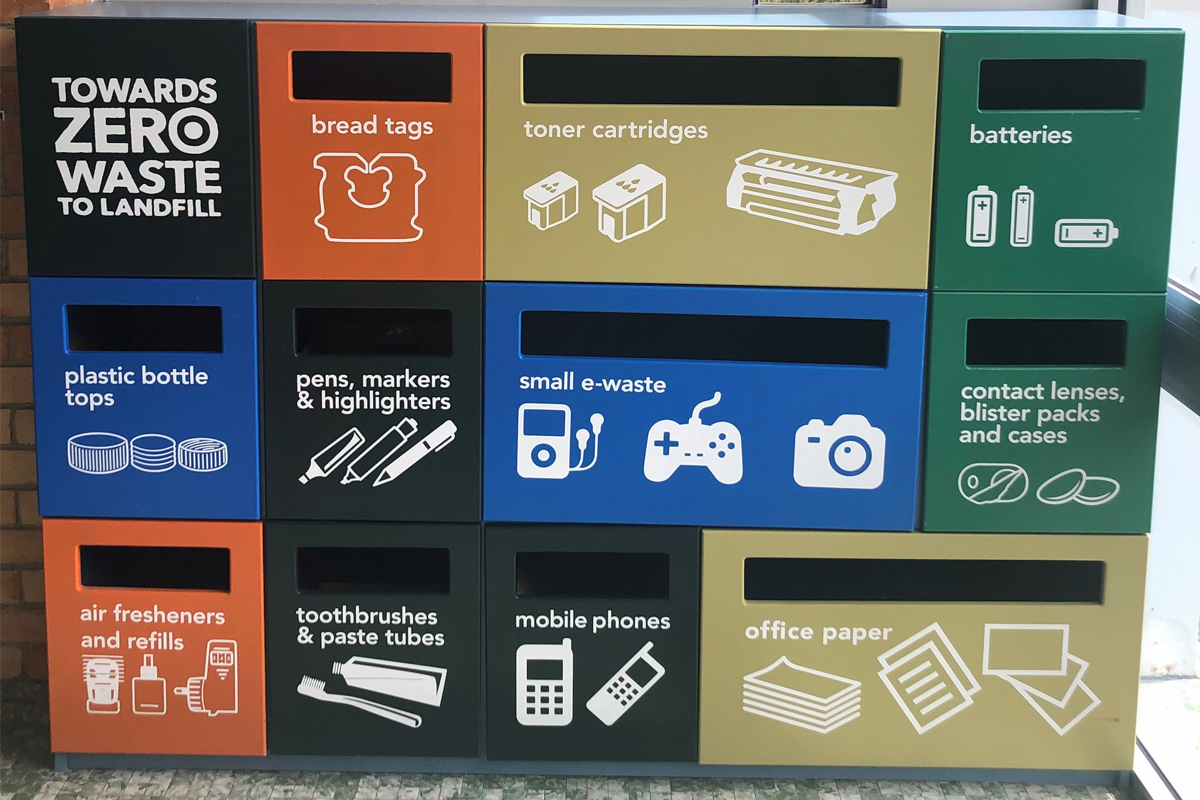
Environmental and social benefits
Operationally derived environmental benefits include reduced waste to landfill from reuse, composting and recycling, contributing to the UTAS journey towards zero waste and application of a circular economy approach in decision making.
An important additional environmental benefit from diverting waste from landfill is the consequent reduction of greenhouse gas emissions, especially from organic waste. It is estimated that once our target of 25% reduction of waste to landfill is achieved, UTAS will be avoiding > 600 t CO2-e per year.
Social benefits come from the involvement of staff and students in governance (e.g., staff and students were directly involved in the development of the Waste Minimisation Action Plan) and in implementation (e.g., through the SIPS program). Staff and students are empowered when they feel they understand how change is happening, and when they can participate in and contribute to UTAS sustainability outcomes.
Other social benefits come from donations to promote reuse. For example, a key initiative over the past few years has been donation of reconditioned computers to students in need.
Leadership and engagement
Our nomination highlights where we have not only focused on ‘turning around’ our internal University approaches and operations, but also on how we have engaged externally with our broader communities (e.g., local and state government, schools). We seek to contribute to consistent messaging for staff and students at work/study and at home. For example, our recycling walls are based on an initial collaboration with the City of Hobart who lent us a prototype for us to pilot it and from there we have been instrumental in taking the approach and signage across the state and beyond.
Pre-COVID, the ‘Don’t Mess with Burnie’ multi-year initiative, facilitated by UTAS with the support of industry partners, equipped schoolchildren with skills, knowledge, and awareness to preserve their local environment and the planet. Students participated in activities demonstrating how recycled materials are sorted and separated, collected litter from the West Beach foreshore and created art from natural materials. In 2022, a similar activity was held with the purpose of revitalising the broader initiative.
Significance to the sector
Our nomination highlights the innovative nature of the way that we involve students throughout the University’s journey towards zero waste to landfill. To leverage opportunities to support student leaders, students have been encouraged to lead or participate through the International Green Gown Award winning Sustainability Integration Program for Students (SIPS).
SIPS is a best-practice example of place-based student engagement and sustainability education in the tertiary education sector. Since 2010, the program has involved thousands of students in real-world sustainability challenges and created opportunities for student leadership, many of them focused on various elements of circularity. SIPS provides meaningful, authentic learning experiences for students via collaborative design of focused learning programs that address on-campus operational priorities. SIPS would be replicable at other tertiary institutions and schools with the potential to be expanded to a wide range of workplaces and partner organisations.
Wider societal impact
Some of our researchers have led and informed the national conversation on the impacts of plastics waste on local and global environments, including on remote beaches in the Pacific.
While the Recycling Walls may seem a small contribution, they have received positive feedback in that they demonstrate that many materials can have a life beyond the initial use. Importantly, with information that while some materials can be recycled many more cannot so everyone must make choices that do not involve the need to recycle at all.
Furthermore, students that have been empowered to lead and/or involved in circular economy projects, will carry their passion and learnings to their jobs and communities, resulting in flow-on impacts to the wider society.
Learner/Graduate employer impact
Through the International Green Gown Award winning Sustainability Integration Program for Students (SIPS), participants have undertaken paid internships, curricular placements, in-class projects, or co-curricular opportunities. The skills students learn through these experiences are transferable to their future employment, through SIPS projects students can put their discipline knowledge to practice in real-world situations. By approaching the campus environment as a living lab, these experiences build their confidence, networking, critical thinking, research, problem solving, project management and public speaking skills. The ability to respond critically to sustainability-focused research, and to replicate what they have learnt through the University environment, is valuable for their personal development and for their future workplaces.
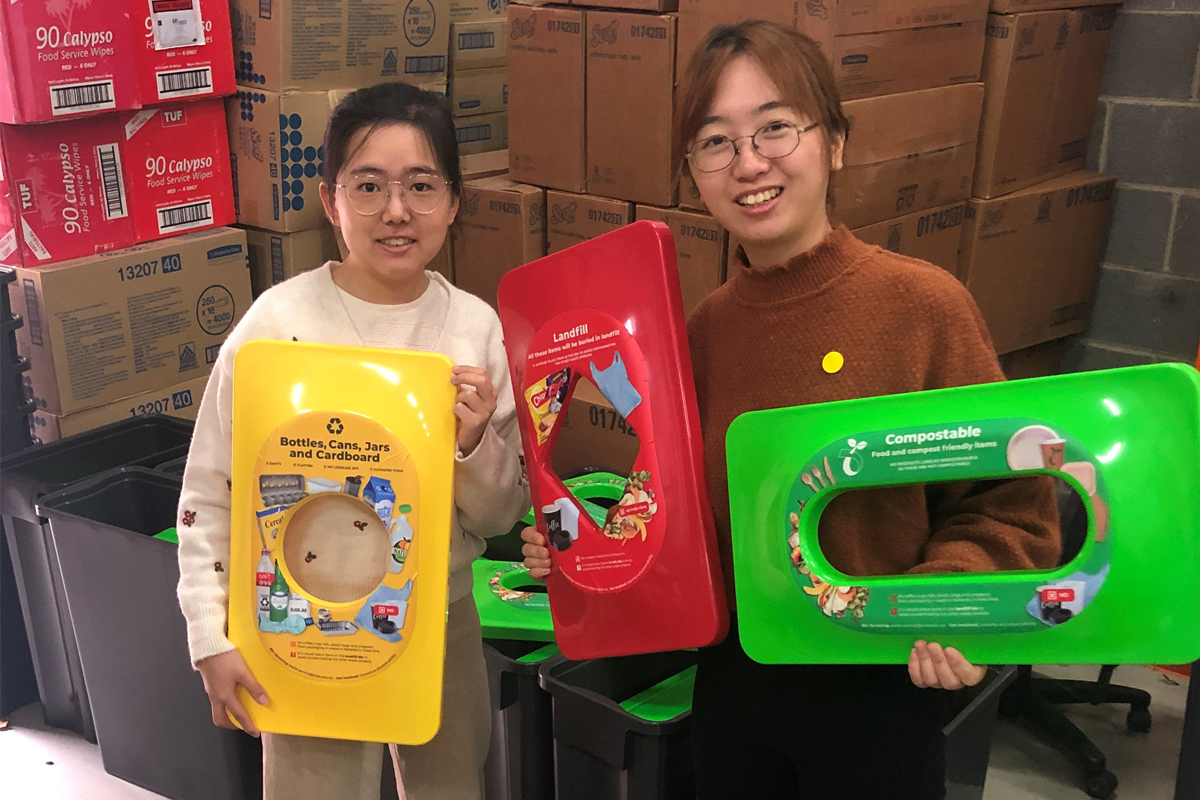
Top 3 learnings
Category finalists
Climate Action/Winners
Climate Action/Winners
Benefitting Society/Winners
Benefitting Society/Winners
Sustainability Champion – Student/Winners
Sustainability Champion – Student/Winners
Creating Impact/Winners
Creating Impact/Winners
Sustainability Champion – Student/Winners
Sustainability Champion – Student/Winners
Creating Impact/Winners
Creating Impact/Winners
Creating Impact/Winners
Creating Impact/Winners
Diversity, Equity & Inclusion in Sustainability/Winners
Diversity, Equity & Inclusion in Sustainability/Winners
Next Generation Learning & Skills/Winners
Next Generation Learning & Skills/Winners
Sustainability Institution of the Year/Winners
Sustainability Institution of the Year/Winners
Leading the Circular Economy/Winners
Leading the Circular Economy/Winners
Leading the Circular Economy
Leading the Circular Economy
Next Generation Learning & Skills/Winners
Next Generation Learning & Skills/Winners
Sustainability Champion – Staff/Winners
Sustainability Champion – Staff/Winners
Sustainability Champion – Student/Winners
Sustainability Champion – Student/Winners
Next Generation Learning & Skills/Winners
Next Generation Learning & Skills/Winners
Sustainability Champion – Staff/Winners
Sustainability Champion – Staff/Winners
Sustainability Champion – Staff/Winners
Sustainability Champion – Staff/Winners
Student Engagement/Winners
Student Engagement/Winners
Past winners
Benefitting Society/Winners
Benefitting Society/Winners
Diversity, Equity & Inclusion in Sustainability/Winners
Diversity, Equity & Inclusion in Sustainability/Winners
Climate Action/Winners
Climate Action/Winners
Sustainability Institution of the Year/Winners
Sustainability Institution of the Year/Winners
Creating Impact/Winners
Creating Impact/Winners
Creating Impact/Winners
Creating Impact/Winners
Top 3 learnings
Leading the Circular Economy/Winners category
The University of Tasmania (UTAS) is a sustainability-focused university. Its leadership in sustainability has been recognised by being the first STARS Gold rated university in Australasia and by being ranked 1st in the world – for the second year running – in SDG13 Climate Action by the Times Higher Education Impact Rankings, and #5 overall for its performance against the 17 SDGs in 2023. Delivering circular economy outcomes has been central to this success. Building on the successes of various programs and pilots, our UTAS Waste Minimisation Action Plan, based on the 10 R’s for circularity, includes a target of reducing waste to landfill by 25% per Equivalent Fulltime Student Load by 2025. Supporting the value of setting a firm target, through the efforts described below and as reported as part of our Climate Active carbon neutral certification, in 2022 UTAS diverted 706 tonnes from landfill (25% of our waste), including 165 t (6%) of organics and 544 t of recycling (19%).
Our circularity approach includes:
Facilities and Operations
- Sustainability and circularity are included as key considerations in the University’s Procurement Policy and Sustainable Procurement Guide that delivers a shift from price and quality criteria only to incorporating triple bottom line outcomes to purchasing goods services, utilities and works. Priorities outlined when commencing the procurement process are:
- Use less (buy only what you need) and minimise packaging.
- Buy local (reduce transport from manufacturer to you).
- Choose items that can be repaired and reused instead of single use.
- Choose items that can be recycled at end-of-life or are under a manufacturer’s product stewardship program.
- With over $800m committed to developing new campuses across the state over a 10-year period, the positive impact of a focus on sustainable development and a circularity mindset is clear. A zero-waste circular economy focus is named up in our strategies guiding campus and building design and construction (e.g., Southern Future Urban Design Framework and Masterplan, see pp29-30 in downloadable document). Already well into delivery stage at our northern campus redevelopments, circular economy highlights include:
- Decommissioned Queensland gas pipeline (366 piles x 18 m, or 6.5 km) repurposed as pilings for three new builds.
- Reuse of 13 steel desk frames to create the shelving in the glasshouse at Inveresk. The cost saving (compared to having custom shelves made up) was around $3000.
- Use of Reconophalt asphalt for new carparks in Launceston and Burnie campuses that has diverted over 900,000 plastic bags and 23,000 toner cartridges from landfill and the product uses reclaimed asphalt and aggregate and sand from street sweepings and hydro-excavation materials.
- Interface® carpets used throughout with fully recycled content and recyclable.
- Building designs focused on ‘de-constructability’ for materials re-use in the future when buildings decommissioned.
- Our Re-Use Program started in 2016 with furniture and has since expanded in number and types of items being relocated within the University or donated to local charities (e.g., stationery, IT equipment). The Re-Use Program has avoided a substantial amount of waste (>90 t to early June 2023), delivered significant savings (>$1.4m) and avoided emissions (>239 t CO2e). With all the transitions, transformations, and decanting of furniture between campuses and buildings, the Re-Use Program has been and will continue to be key in providing literal truckloads of furniture for teaching and office spaces across all our Tasmanian campuses, as well as providing an avenue to re-home any surplus furniture no longer needed through donations and dis-assembly for recyclable components as a last resort.
- Since late 2019, 21 recycling walls have been deployed across all our Tasmanian campuses to enable staff and students to deposit those hard to recycle items not collected through the standard co-mingled streams and to encourage participation in the circular economy. Finding and using the walls is enabled through the provision of an online interactive map and users guide. Items like toothbrushes and toothpaste tubes, batteries, printer cartridges, pens and texters, blister pack pill packaging, small e-waste items and mobile phones are just some of the recycling streams collected and forwarded to local and mainland-based recyclers. The items get turned into new items such as outdoor and garden furniture, alternative road and pavement materials and even recycled stationery. The recycling walls make visible our commitment towards a zero-waste society and a circular economy. Since rollout, the recycling walls have diverted over 1.2 tonnes from landfill. Most of the recycling walls were made from old filing cabinets sourced from the Re-Use Program. These ‘DIY’ recycling walls have custom graphics on all sides to provide information about where the materials go, how they are recycled and into what sorts of products.
- Sustainability with a circular economy focus is also embedded in the Asset Management Procedure and the Clean out and Disposal Process Guide (latest versions of both approved in 2022). The University recognised a need for a tool to help staff sustainably deal with redundant items in a clean-up process. This guide fills a gap to enhance the outcomes of clean-up activities. The guide provides simple to follow step-by-step processes on options to help achieve improved benefits through re-use, donation, recycling, etc. to minimise waste to landfill and maximise value to the University and supported organisations. The first draft was developed in consultation with College of Science and Engineering staff to ensure sustainable outcomes during a major cleanout in 2020.
- Our ‘bin rationalisation program’ was rolled out across all campuses by mid-2022 that included centralised bin sets, new signage, collection of food organics from all tea rooms, with the collected materials commercially composted rather than landfilled, and removal of under desk bins to address contamination issues and reduce the number of plastic bags used.
- Installing an in-vessel aerobic composter at our new Inveresk campus in August 2022 allowed processing of over 8.5 tonnes of materials to produce about 12 cubic metres or 5 tonnes of compost (compost having a higher weight per volume ratio than most inputs apart from coffee grounds). The composter takes materials from on-site cafes, student accommodation (each student has access to a ‘compost caddy’ to support this) and the extensive community gardens on the site. The resulting compost is used in the gardens and given away to site volunteers for home gardens.
- To improve services, save money and reduce emissions, skip bin sensors were temporarily installed in 2021 to gather data on fullness and contamination. This resulted in changes to collection schedules that has saved over $5000/month. A waste hub to reduce the number of skip bins and increase efficiencies is planned for Newnham Campus in 2023.
- All onsite catering contracts require use of commercially compostable packaging since 2021, which was a key initiative of the Plastics Minimisation Working Group of the Sustainability Committee.
- 35 abandoned bikes were collected in 2022, made road worthy through a partnership program with the Launceston Big Picture School, and donated to local students, demonstrating repair first principles of circularity.
- Five on campus cafes across the state have keg milk from The Udder Way. This has significantly reduced their recycling needs as completely avoids single use milk bottles as the kegs are cleaned and refilled.
- Closing the loop is important as exemplified in our Sustainability Tracking Assessment and Rating System (STARS) reporting for circular economy categories, such as a 98% purchase of office paper that is 100% recycled content.
Student Experience and Engagement
- Students are directly involved in a wide range of circular economy-related projects through the Sustainability Integration Program for Students (SIPS). Since 2017, 113 students have undertaken projects focused on elements of a circular economy approach that have directly impacted on policy, procedure, programs, and projects. SIPS students undertook research to design and initiate the recycling wall program, verified the Re-Use program calculations for the Australian context as the program was developed in the United Kingdom, undertook auditing to calibrate the new bin sensors to ensure data accuracy and collected pre and post waste volume data to measure bin rationalisation program impact.
- Through waste related SIPS projects, students consult, seek advice and network with a wide range of external waste partner organisations in Tasmania including Replas, Northern Tasmanian Waste Management Group, Hydro Tasmania and Hobart Airport, and local councils including Hobart and Burnie.
- Waste audits with SIPS students have included TIA (Tasmanian Institute of Agriculture) labs and staff offices at Cradle Coast campus, Tasmanian University Student Association (TUSA) events at various campuses, external skip bins at Newnham campus, tea room waste at Sandy Bay campus, food waste from on campus cafes and Student Accommodation Newnham.
- Our waste data reporting is informed by waste audits undertaken by Environmental Impact Assessment (EIA) students over consecutive years.
- Students have worked with the Sustainability and Student Living teams across consecutive years to reduce waste to landfill through encouraging donations and recycling during the end of year students’ move-out period.
- To reduce food waste to landfill, students at the Atrium Apartments (Burnie Campus), Hobart City Apartments (Hobart CBD Campus) and at Sandy Bay Campus apartments have access to either compost bins or worm farms. Across the sites there is one compost bin, two hot compost bays and ten worm farms. All are managed by students with support from on-site Student Living or academic staff mentors. Current and alumni SIPS students were involved in the research and design of these composting projects.
- TUSA officers and staff at our northern campus created the TUSA op shop, where students and staff donate kitchen ware and other household items to be available to other students to avoid buying new.
- Student projects have also focused on research waste, including diverting hundreds of kilograms of fish from landfill at the Taroona campus experimental fish facility and a review of sustainable lab programs at other universities with recommendations and opportunities shared with lab managers.
- The Green Impact Program for staff engagement started in 2018 and was expanded to include student teams in 2020. A bespoke student program started in 2021, with waste reduction and circularity being a key focus. UTAS staff and students have won three Australasian Green Impact champion awards, with waste reduction typically featuring on their applications. For example, a recent staff winner, who as part of their role hosts regular lunches for students, enables a significant reduction in waste to landfill by providing reusable crockery for students and staff at events, as well as for day-to-day use on campus that people can borrow and bring back. A recent student winner donates time to wiping excess University laptops for student donation and is a founding member of the UTAS students’ Zero Waste Society.
Learning, Teaching and Research
UTAS has a strong record in environmental research that addresses local and global issues. UTAS is a core member of the Sustainable Communities and Waste Hub (SCWH) that is one of four research Hubs as part of the Australian Government’s National Environmental Science Program (NESP2). The SCWH is a 7-year, multi-disciplinary and multi-institution initiative delivering innovative sustainability technologies, knowledge products and services for urban and regional communities and the waste management sector. The Hub’s solutions will enable the transitioning of production systems, investment, and consumer behaviour towards a circular economy.
Over the past few years, the Tasmanian Institute of Agriculture (part of UTAS) researchers have been working with True South Seafoods to research the potential of turning invasive sea urchin carcasses into a valuable fertiliser for home and agricultural use. Until UTAS became involved, following roe extraction the carcasses were landfilled. However, this project demonstrated that if ground up and dried, urchin fertiliser is created that boosts plant growth and adds important trace elements to soil. Just as importantly, turning the urchins into fertiliser adds additional value and ensure that 100% of the creature’s biomass is utilised effectively compared to just the 5% when only roe extraction occurs. The product is being used in the University’s community food gardens as well.

Environmental and social benefits
Operationally derived environmental benefits include reduced waste to landfill from reuse, composting and recycling, contributing to the UTAS journey towards zero waste and application of a circular economy approach in decision making.
An important additional environmental benefit from diverting waste from landfill is the consequent reduction of greenhouse gas emissions, especially from organic waste. It is estimated that once our target of 25% reduction of waste to landfill is achieved, UTAS will be avoiding > 600 t CO2-e per year.
Social benefits come from the involvement of staff and students in governance (e.g., staff and students were directly involved in the development of the Waste Minimisation Action Plan) and in implementation (e.g., through the SIPS program). Staff and students are empowered when they feel they understand how change is happening, and when they can participate in and contribute to UTAS sustainability outcomes.
Other social benefits come from donations to promote reuse. For example, a key initiative over the past few years has been donation of reconditioned computers to students in need.
Leadership and engagement
Our nomination highlights where we have not only focused on ‘turning around’ our internal University approaches and operations, but also on how we have engaged externally with our broader communities (e.g., local and state government, schools). We seek to contribute to consistent messaging for staff and students at work/study and at home. For example, our recycling walls are based on an initial collaboration with the City of Hobart who lent us a prototype for us to pilot it and from there we have been instrumental in taking the approach and signage across the state and beyond.
Pre-COVID, the ‘Don’t Mess with Burnie’ multi-year initiative, facilitated by UTAS with the support of industry partners, equipped schoolchildren with skills, knowledge, and awareness to preserve their local environment and the planet. Students participated in activities demonstrating how recycled materials are sorted and separated, collected litter from the West Beach foreshore and created art from natural materials. In 2022, a similar activity was held with the purpose of revitalising the broader initiative.
Significance to the sector
Our nomination highlights the innovative nature of the way that we involve students throughout the University’s journey towards zero waste to landfill. To leverage opportunities to support student leaders, students have been encouraged to lead or participate through the International Green Gown Award winning Sustainability Integration Program for Students (SIPS).
SIPS is a best-practice example of place-based student engagement and sustainability education in the tertiary education sector. Since 2010, the program has involved thousands of students in real-world sustainability challenges and created opportunities for student leadership, many of them focused on various elements of circularity. SIPS provides meaningful, authentic learning experiences for students via collaborative design of focused learning programs that address on-campus operational priorities. SIPS would be replicable at other tertiary institutions and schools with the potential to be expanded to a wide range of workplaces and partner organisations.
Wider societal impact
Some of our researchers have led and informed the national conversation on the impacts of plastics waste on local and global environments, including on remote beaches in the Pacific.
While the Recycling Walls may seem a small contribution, they have received positive feedback in that they demonstrate that many materials can have a life beyond the initial use. Importantly, with information that while some materials can be recycled many more cannot so everyone must make choices that do not involve the need to recycle at all.
Furthermore, students that have been empowered to lead and/or involved in circular economy projects, will carry their passion and learnings to their jobs and communities, resulting in flow-on impacts to the wider society.
Learner/Graduate employer impact
Through the International Green Gown Award winning Sustainability Integration Program for Students (SIPS), participants have undertaken paid internships, curricular placements, in-class projects, or co-curricular opportunities. The skills students learn through these experiences are transferable to their future employment, through SIPS projects students can put their discipline knowledge to practice in real-world situations. By approaching the campus environment as a living lab, these experiences build their confidence, networking, critical thinking, research, problem solving, project management and public speaking skills. The ability to respond critically to sustainability-focused research, and to replicate what they have learnt through the University environment, is valuable for their personal development and for their future workplaces.

Related finalists
Climate Action/Winners
Climate Action/Winners
Benefitting Society/Winners
Benefitting Society/Winners
Sustainability Champion – Student/Winners
Sustainability Champion – Student/Winners
Creating Impact/Winners
Creating Impact/Winners
Sustainability Champion – Student/Winners
Sustainability Champion – Student/Winners
Creating Impact/Winners
Creating Impact/Winners
Creating Impact/Winners
Creating Impact/Winners
Diversity, Equity & Inclusion in Sustainability/Winners
Diversity, Equity & Inclusion in Sustainability/Winners
Next Generation Learning & Skills/Winners
Next Generation Learning & Skills/Winners
Sustainability Institution of the Year/Winners
Sustainability Institution of the Year/Winners
Leading the Circular Economy/Winners
Leading the Circular Economy/Winners
Leading the Circular Economy
Leading the Circular Economy
Next Generation Learning & Skills/Winners
Next Generation Learning & Skills/Winners
Sustainability Champion – Staff/Winners
Sustainability Champion – Staff/Winners
Sustainability Champion – Student/Winners
Sustainability Champion – Student/Winners
Next Generation Learning & Skills/Winners
Next Generation Learning & Skills/Winners
Sustainability Champion – Staff/Winners
Sustainability Champion – Staff/Winners
Sustainability Champion – Staff/Winners
Sustainability Champion – Staff/Winners
Student Engagement/Winners
Student Engagement/Winners
Other finalists
Climate Action

Driving Towards Tomorrow’s Campus with Vehicle-to-Grid EV Technology
As part of Flinders University’s drive to innovate and become a leader in climate action, the University launched its Vehicle-to-Grid (V2G) initiative. This involved installing and maintaining 20x V2G and smart chargers for its growing electric vehicle fleet. Leveraging 100% renewable energy generated by ENGIE’s Willogoleche Wind Farm and Flinders University’s solar power systems, this enables the storage of renewable energy in EV batteries to be discharged on campus during peak demand periods. Hence, allows for these EV fleets to operate as a Virtual Power Plant (VPP) to deliver peak demand management and optimization of behind-the-meter generation.
Overall, this initiative demonstrates the reliability and scalability of bi-directional and uni-directional smart-charging systems for EVs in reducing GHG emissions while facilitating teaching, research, and innovation opportunities. Moreover, it exemplifies a sustainable and innovative solution to scale energy storage technology and increase renewables.
Sustainability Champion – Staff/Winners

Brandan Espe
Environmental Officer / Acting Grounds Supervisor
Brandan has brought over 50 federally listed Endangered species of plant into the James Cook University living collection, many of which have never been cultivated and are found in no other collection in the world.
Of these, over half have been sustainably wild collected, inclusive of field and clone data, so they can be used for ongoing conservation, research and teaching, the remaining being sourced from private and partner organisations through favours of service or trades.
He personally funded the project from 2019-2022, until funding was awarded for the program due to its success, with the program now being engrained into the Universities landscapes for ongoing management should he leave JCU, creating a threatened species legacy collection.
The program has now expanded beyond this, with an additional 48 species now funded for further addition, some of which are only known from less than 5 sightings in history.
Student Engagement

Sustainability Leaders creating real impact!
La Trobe created a unique Sustainability Leaders volunteering program to increase engagement with students on campus and empower them to act against waste and promote sustainability. It included the following initiatives:
- Promoting the reusable crockery implementation,
- Increasing knowledge action of other students on campus to diversion comingled recycling and organic waste from landfill.
- Focus on waste audits and data,
- Improved signage through new waste posters for students living on campus.
- Collaboration with Cirka (our cleaning and waste partner) to create a waste wall and;
- Learning all things sustainability (net zero, biodiversity, waste, reusables, engagement)
These initiatives yielded significant results and with a reduction in waste contamination by almost 40% at the residential buildings and engagement with over 80 groups of people for the Reusable Revolution.
Creating Impact

Where knowledge meets habits: Empowering students for a sustainable tomorrow
Our online Sustainability Challenges offer participants an engaging, self-paced learning experience centered around a specific United Nations Sustainable Development Goal (UNSDG). Requiring minimal resourcing and at zero-cost to participants, we’ve created replicable, compact, scalable, and impactful learning opportunities that result in real impact.
The Challenges follow a structured process that moves participants from knowledge gain to simple action to celebration, to establish small but mighty habits relating to waste and carbon emissions. This approach recognises that knowledge alone is often insufficient to drive behaviour change, and that ease of action and celebration are crucial components in creating sustainable habits.
Sustainability Champion – Staff/Winners

Catherine (CeeJay) Donovan
Veterinary nurse – Anaesthesia
From establishing the Massey Vet School Green Team to leading impactful initiatives, my commitment to environmental sustainability has been making waves. With the help of my team, I have accomplished numerous small, yet meaningful actions, including integrating a sustainability lecture for final year vet students and implementing battery recycling alongside rechargeable battery use. Our larger projects encompass the introduction of green waste and soft plastics recycling bins, an energy audit resulting in power-saving measures, and playing a part in a successful rubbish audit. I spearheaded the ‘6 in 6’ campaign, empowering individuals with six simple steps for workplace sustainability. Through the SustainaVet social media pages I help to educate and inspire peers nationwide. As the Massey School of Veterinary Science sustainability champion, I had the privilege of speaking at the annual veterinary conference on sustainability in clinical practice. Currently I’m conducting pioneering research on responsible cat waste disposal. Together, we’re forging a greener future, one initiative at a time.
Sustainability Champion – Student

Louis Walmsley
SDG Coordinator Monash Association of Sustainability, Office Bearer Monash Student Association’s Environmental and Social Justice Department, Masters of Environment and Sustainability Student
Louis is an exceptional student sustainability leader at Monash University. His passion and dedication to sustainability have made a significant impact on the community. Louis’s values revolve around sustainability, which is evident upon meeting him. He actively participates in various sustainability groups, demonstrating his commitment to creating a more environmentally conscious society.
One of Louis’s notable involvements is with Precious Plastic Monash, where he organizes remarkable events and fosters collaboration among like-minded individuals, student groups, and staff. His contributions to the Monash Association of Sustainability have allowed him to conduct valuable research on plastic usage and climate action, resulting in positive changes within the university.
Through his work with the Monash Student Association, Louis has engaged hundreds of students in fun and interactive sustainability initiatives. He took the initiative to organize a sustainability food fair, which was one of the largest sustainability-related events held at Monash post-COVID. This accomplishment is a true testament to Louis’s hard work and creativity.
Louis is an outstanding student leader whose efforts in sustainability have had a lasting impact on Monash University and its community. His inspiring nature resonates with everyone who knows him.


